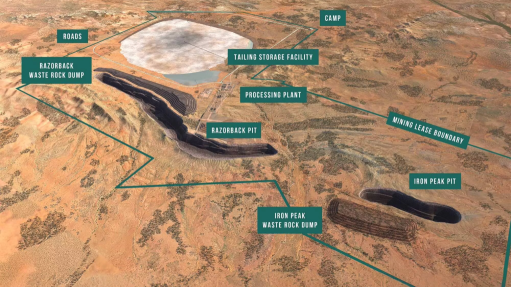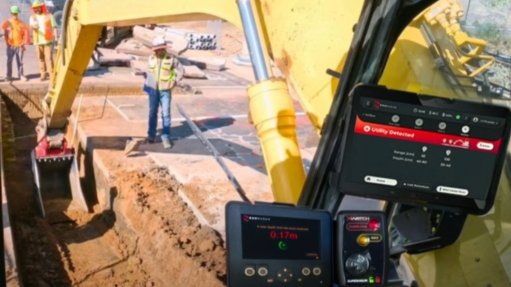Saice suggests PPPs as the solution to govt’s constrained fiscus
The South African Institution of Civil Engineering (Saice) suggests an alternative solution that will assist the National Treasury as it grapples with the country’s constrained fiscus.
In a letter sent to the Treasury's director-general, the institution has proposed a public-private partnership (PPP) solution, where the advisory fees for transaction advisers can be funded through a bridging loan from a bank, where the loan is repaid on financial close of the project taken from project funding.
This innovative solution will enable the continued investment in the development of infrastructure needed to boost the economy of South Africa, creating both jobs and enabling skills development, states Saice.
“The constrained situation in which the fiscus currently finds itself requires an innovative approach, and the participation of all interested and affected parties to develop sustainable solutions. It is well known that PPPs can be used to develop serviced infrastructure using private sector capital for construction,” explains Saice.
“The process is well established in South Africa, supported by the PPP Unit of the Government Technical Advisory Centre (GTAC) within the National Treasury, and regulated by the Budget Office of National Treasury. To develop and plan a PPP, an institution needs to be able to fund the transaction adviser fees over a period of approximately two years.
“This concept, still in its initial development and testing phase, proposes that a bank, either the Development Bank of Southern Africa or a commercial bank, fund the adviser fees by means of a bridging loan for the planning and procurement phase of the project.
“The bank loan would be repaid in a single tranche, on first drawdown, when the private party achieves financial close. This would make the loan a relatively short-term loan, usually less than two years, to provide the bridging funding required to meet the transaction advisor fees,” says Saice president Steven Kaplan.
The advantage of such an arrangement would be that the bank provides funding on a project finance type basis to pay the advisers with drawdowns linked to the transaction adviser’s achieving determined milestones. In this manner, the institution would not be required to fund the advisory fees from what is, or may become, an extremely constrained operating budget.
“The outcome would be that State institutions could enter into the planning, procurement and construction of infrastructure through PPPs without impacting their operating or capital expenditure budgets,” Kaplan adds.
Saice points out that another benefit would be that government would need to be rigorous in the management of the planning and procurement process, in not delaying the process or cancelling the project once it has commenced.
Lender’s due diligence over the transaction adviser’s deliverables, against milestones, will help to ensure that the infrastructure is delivered with little opportunity for there to be any corruption in the procurement process.
Simultaneously, the National Treasury Budget Office would need to provide Treasury Approvals within a reasonably consistent timeline as time taken to approve would impact the interest cost of the bridging loan.
Saice adds that the securing of private sector funding for the construction of the required infrastructure is already a well-established and understood process in the PPP environment.
“This bridging initiative is to extend the established use of private sector funding, in the construction of infrastructure, to be used for the feasibility, planning and procurement phases.”
The details of this concept are by no means finalised, and Saice has proposed that a PPP specialist working group be formed by the National Treasury GTAC PPP Unit in collaboration with Saice to workshop the mechanisms for achieving the desired outcome.
Saice sees strong potential for bridging loan funding for transaction advisers that would assist government entities to develop and plan feasible PPP projects.
“In addition to this PPP funding proposal, as a learned society, Saice continues to offer to assist government in areas such as skills development through mentoring; measures to ensure the effective use of resources allocated to maintenance that will create jobs and improve skills; suggestions on reforms aimed at reducing regulatory barriers; and processes to ensure the effective use of funds allocated to State entities all focused on economic infrastructure,” comments Saice.
Article Enquiry
Email Article
Save Article
Feedback
To advertise email advertising@creamermedia.co.za or click here
Press Office
Announcements
What's On
Subscribe to improve your user experience...
Option 1 (equivalent of R125 a month):
Receive a weekly copy of Creamer Media's Engineering News & Mining Weekly magazine
(print copy for those in South Africa and e-magazine for those outside of South Africa)
Receive daily email newsletters
Access to full search results
Access archive of magazine back copies
Access to Projects in Progress
Access to ONE Research Report of your choice in PDF format
Option 2 (equivalent of R375 a month):
All benefits from Option 1
PLUS
Access to Creamer Media's Research Channel Africa for ALL Research Reports, in PDF format, on various industrial and mining sectors
including Electricity; Water; Energy Transition; Hydrogen; Roads, Rail and Ports; Coal; Gold; Platinum; Battery Metals; etc.
Already a subscriber?
Forgotten your password?
Receive weekly copy of Creamer Media's Engineering News & Mining Weekly magazine (print copy for those in South Africa and e-magazine for those outside of South Africa)
➕
Recieve daily email newsletters
➕
Access to full search results
➕
Access archive of magazine back copies
➕
Access to Projects in Progress
➕
Access to ONE Research Report of your choice in PDF format
RESEARCH CHANNEL AFRICA
R4500 (equivalent of R375 a month)
SUBSCRIBEAll benefits from Option 1
➕
Access to Creamer Media's Research Channel Africa for ALL Research Reports on various industrial and mining sectors, in PDF format, including on:
Electricity
➕
Water
➕
Energy Transition
➕
Hydrogen
➕
Roads, Rail and Ports
➕
Coal
➕
Gold
➕
Platinum
➕
Battery Metals
➕
etc.
Receive all benefits from Option 1 or Option 2 delivered to numerous people at your company
➕
Multiple User names and Passwords for simultaneous log-ins
➕
Intranet integration access to all in your organisation

















